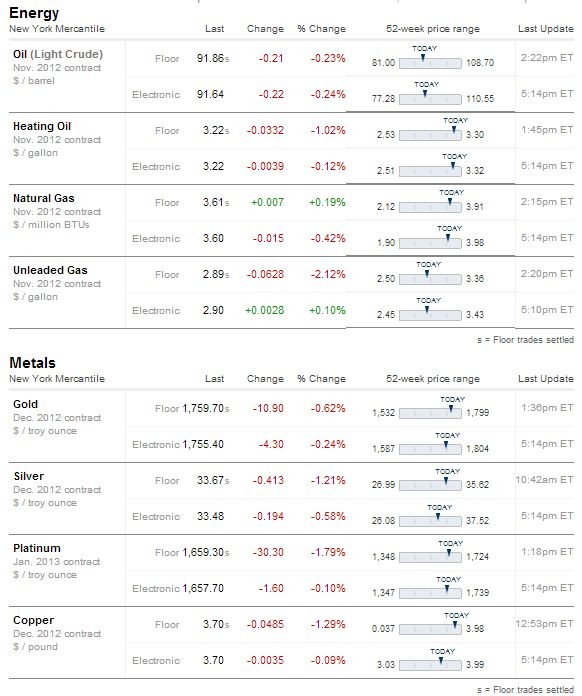Why Spinoffs Beat the Market (AOL CVC MAR MSG TWX WU)
Post on: 9 Июль, 2015 No Comment

Watch stocks you care about
The single, easiest way to keep track of all the stocks that matter.
Your own personalized stock watchlist!
It’s a 100% FREE Motley Fool service.
Time Warner ( NYSE: TWX ) did it to get rid of AOL ( NYSE: AOL ). Marriott ( NYSE: MAR ) did it to create Host Marriott. Electronic-payments processor First Data used one to separate out Western Union ( NYSE: WU ). And Cablevision ( NYSE: CVC ) used one to uncouple itself from Madison Square Garden ( Nasdaq: MSG ) .
What are we talking about here? The wonderful world of spinoffs: corporate transactions undertaken to separate businesses. Spinoffs are an area of the investment world into which few investors venture. The reasons for their lack of enthusiasm are clear: spinoffs transactions can be complex, and the available information is often limited and convoluted. It’s too bad that so few people venture into the spinoff arena, though, because spinoffs are one of the most compelling and consistent sources of outsized returns.
According to a Penn State study, over a 25-year period, spinoff stocks outperformed both their industry peers and the S&P 500 by about 10 percentage points per year over the three years after being spun off. The newly created companies weren’t the only high-performers: Those spinoffs’ parent companies outperformed their peers by more than 6 percentage points per year over the same period.
Why spinoffs happen
Why do both the parents and the spawn fare so well after a spinoff? To answer that, first we need to look at why companies engage in spinoffs in the first place. There are a number of reasons, but here are some of the most common:
- A spinoff can return value to shareholders from a business that is difficult to sell outright.
- A spinoff can separate unrelated businesses, allowing management of each new entity to focus its undivided attention on a single set of goals.
- A spinoff can make it easier for the market to understand distinct businesses, and to value them more appropriately.
- A spinoff can fix legal or regulatory issues, providing brighter opportunities for the company.
These different reasons all have a common thread: They’re backed by shareholder-friendly motives. Spinning off a difficult-to-sell business gets that value into shareholders’ pockets. Separating unrelated businesses to improve management effectiveness helps those businesses reach their potential, to shareholders’ benefit. Making it easier for the market to understand a business can allow undervalued stocks the chance to shine. And if sidestepping regulatory issues opens up new strategic options for a company, shareholders definitely win.
How you can get spinoff stocks on the cheap
In a typical spinoff transaction, the shares of the newly formed company get distributed to the parents’ shareholders, who are then free to hold them, sell them, or buy more. Overwhelmingly, shareholders promptly sell these newfound shares — and not for risk-reward or valuation-centric reasons.
Individual shareholders usually sell their spinoff shares because they were originally investing in the parent company, not the smaller and often unrelated business being spun off. So when they get the chance, they rid themselves of their stake in a business they think they don’t want.
Institutional investors sometimes sell for the same reason, but they also often sell simply because they don’t have a choice. Spinoff companies are usually a small fraction of the size of the parent company, and chances are the spinoff stock will not be included in the S&P 500 index. Thus, the many institutional investors who are confined to that universe are forced to sell their shares. Even fund managers not restricted to the S&P 500 sell their shares, though, simply because the time and effort needed to research and stay up on an investment that accounts for such a small piece of their overall portfolio is not worth it. As Joel Greenblatt, author of You Can Be a Stock Market Genius. describes such indiscriminant selling as downright small-f foolish. Picking up the spinoff shares after the price is driven down by the flurry of selling, however, can be Foolish indeed.
The Spinoff Report Card
Our Motley Fool Spinoff Report Card grades spinoffs and spinoff parents on four criteria (outlined in Part 2 ) and assigns a letter grade for each criteria, as well as an overall grade. Keep a look out for this and other new Report Cards rolling out on Fool.com.
This is Part 1 of your guide to the Spinoff Report Card. Be sure to also check out Part 2: How to Pick the Best Spinoffs .
Fool analyst Alex Pape does not own shares in any company mentioned. Motley Fool Options has recommended writing covered calls on Western Union, which is a Motley Fool Inside Value recommendation and a Motley Fool Stock Advisor choice. Try any of our Foolish newsletter services free for 30 days. The Motley Fool has a disclosure policy .














